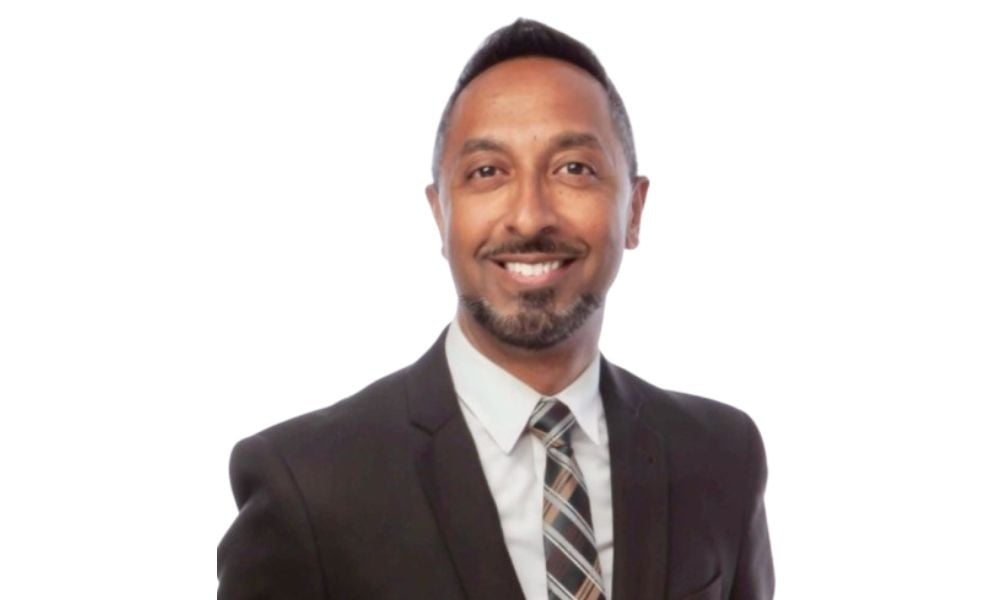
Eighteen years of experience at McDonald's helped him in his new role at PortsToronto

When Will Ramjass first interviewed for the senior vice president and general counsel role at the Toronto Port Authority, which conducts business as PortsToronto, he admits he was somewhat nervous. Transitioning from assistant general counsel at McDonald’s into the transportation sector marked a significant change, prompting Ramjass to do some research of his own.
“When I started interviewing for the role, that was one of my concerns too,” he tells Lexpert. “How are my skills and experience going to translate over to this new industry in which I have had no previous professional experience? [However], as I started doing more research into the PortsToronto, what the role was and speaking to some people who understood the industry a lot better than I did, I began to feel a lot more comfortable that my experience and skills were actually very [transferable].”
Ramjass worked for McDonald’s for 18 years, during which time he learned what Ray Kroc called the “three-legged stool” philosophy. According to this philosophy, if the organization is to succeed, all stakeholders within the business, such as the franchisees and the suppliers, must be successful and equally committed to the brand ethos.
“I understood the idea of how a legal team can support a business where there are multiple stakeholders responsible for the ultimate success of the enterprise,” says Ramjass. “So, when I was interviewing and coming over to PortsToronto, I actually began to understand that it's no different. We may be government-sanctioned, we exist under the auspices of Transport Canada, but we are really run as a revenue-driven entity.”
Understanding that helped Ramjass see how his time spent at McDonald’s could actually help him in his new role. Comparing the idea of restaurant franchisees and suppliers with the airport and marine port stakeholders that partner in the operations of the ports for them, Ramjass tells Lexpert that, piece by piece, everything started to come together.
“It takes stakeholders to be successful,” he says. “And when I understood just how the business model was run here, I was fairly confident coming over that I could bring my legal talents and experience to help build out a team. It was scary at first, but once I got my head wrapped around it, it was legitimately all about stakeholder relationships and ensuring that the legal team facilitates those relationships.”
Ramjass hopes to continue this trajectory, embracing new trends and ideas that are currently flooding the legal field. He says a key goal for both himself and his team is to build on the organization’s rich history.
“What [I found] so intriguing about this opportunity was the history of PortsToronto. We’re a successor to the Toronto Harbour Commission, which was set up in 1911, which was also a successor of the original harbour trust … set up in the 19th century. They were responsible for managing the Toronto harbour and infilling portions of the water for city-building.”
When Ramjass transitioned from McDonald's to PortsToronto, he was captivated by the unique opportunity to contribute to one of Canada's most historic enterprises.
"Having an opportunity to come from McDonald's and land in another very historic enterprise was really intriguing to me," he says. This move wasn't just a change of scenery but a step into a role that intersects with airside and marine transportation, not to mention overseeing one of Canada's largest freshwater marinas.
"We're the only port authority in Canada that has both an airport and a marine port," Ramjass highlights.
As Ramjass sees it, the future is not just an extension of the past but a reimagination of transportation. With a new management team, including Ramjass himself, PortsToronto is setting its sights on ambitious strategic and vision planning.
“We have a brand-new management team here,” he says. “Our vision is really transportation reimagined… Let's make sure that we are one of the leading airports that can usher in a new era of electric flying or sustainable airfields.”
According to Ramjass, Ports Toronto's journey ahead involves not just navigating regulatory and strategic challenges but also forging strong alliances with all levels of government. His role as GC extends beyond legal advisement to actively shape the organization's future direction.
“Being a part of that as a lawyer, thinking ahead of whether it's the regulatory pieces that that involves or the strategic alignments within all levels of government, whether it's the city of Toronto municipally, the province or federal government – [it’s about] trying to advance those strategies and that vision. It’s so intriguing for me to be a part of that.”